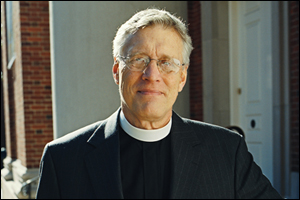When Russia moved into Crimea, it brought back memories of how the Soviets infiltrated and took over my homeland when  I was growing up next door to Ukraine. I’ve been pondering whether it was optimism or hope that kept me alive when I was a child laboring in a communist work camp in Romania. It might have been a little of both: genuine hope and false optimism. At the time, I believed that if I did my work in the sewers admirably enough, my petty overlords might somehow let me see my parents again. Of course, nothing could have been further from the truth. They would gladly have watched me starve, and they did, as the years of my captivity went by. My death would have served their political mission: given their loathing for what my father stood for, as an executive for an American corporation. I was steadily losing weight, and probably would have died eventually as so many workers did when the Soviets took over Romania, if President Eisenhower and the U.S. government hadn’t intervened to save me and my brother. I’ve told this story in detail in The Constant Choice, but after hearing a remarkable sermon about optimism and hope, I’m wondering which of them kept me alive.
I was growing up next door to Ukraine. I’ve been pondering whether it was optimism or hope that kept me alive when I was a child laboring in a communist work camp in Romania. It might have been a little of both: genuine hope and false optimism. At the time, I believed that if I did my work in the sewers admirably enough, my petty overlords might somehow let me see my parents again. Of course, nothing could have been further from the truth. They would gladly have watched me starve, and they did, as the years of my captivity went by. My death would have served their political mission: given their loathing for what my father stood for, as an executive for an American corporation. I was steadily losing weight, and probably would have died eventually as so many workers did when the Soviets took over Romania, if President Eisenhower and the U.S. government hadn’t intervened to save me and my brother. I’ve told this story in detail in The Constant Choice, but after hearing a remarkable sermon about optimism and hope, I’m wondering which of them kept me alive.
As a naive optimist, I told myself good work gets rewarded with a better job and a better meal ticket. (In spirit, I was already an American, in other words.) In a way, this turned out to be partly true. For practical reasons, my bosses put me where they could get the most results from my diligence and energy, once I’d proven myself. Yet behind that work ethic was the more encompassing hope of my faith. I watched my esteemed grandfather attend services in the Eastern Orthodox Church and I was awed by his intelligent humility — until he was arrested and murdered in prison. In short, his faith didn’t save him, in a physical sense. It saves none of us that way. Goodness doesn’t save you at some point in the future. It saves you immediately, right now, at every moment you choose it. Yet, because of what I’d seen in my grandfather’s life, and despite the way it ended, when my brother and I were arrested I still believed in Jesus as a cross between Mr. Incredible and Santa Claus. He would rescue the good and give the evil enough rope to hang itself. I closed my eyes to how this wasn’t the case for my grandfather, and countless others who were killed in Romania. Evil often wins all the best prizes in this world.
Yet what actually happened, though it didn’t justify my optimism about how the world works, confirmed my faith, and still does. The goodness of certain key people in the United States — my parents, Frances Payne Boulton, the president and many journalists willing to tell the truth about Stalin and our plight — actually did save our lives. I believe now that it was actually hope that sustained me, not my willingness to believe the best about my captors as human beings. Hope was my openness to the value of goodness in and of itself — not as a way of achieving some particular result or reward.
A month or so ago, Michael Lindvall talked about this distinction between optimism and hope at the Brick Presbyterian Church here in New York City. He said:
It’s a sweet thing, optimism, though it can wear thin. It can fade away when life gets tough. If it’s something like fuel that I have in my tank, I can eventually run out of it. Hope is grounded in something outside me. It’s rooted in a reality beyond me.
Goodness straddles both of these realms: it’s both within and without. It’s something within me (that can’t be exhausted), and it’s also something that comes to my aid from beyond my own individual situation. In both cases, it’s embodied in the actions of particular human beings — in their daily choices. That’s how God works, through human choice. I chose to believe in that as a child, and I’ve continued to believe in it for the rest of my life.
Hope isn’t about the future, it’s about right now — finding what’s genuinely good in every step you take through life, so that you’re already saved, in the highest sense, no matter how bad your future looks. And choose good often enough and good begins to come back to you.